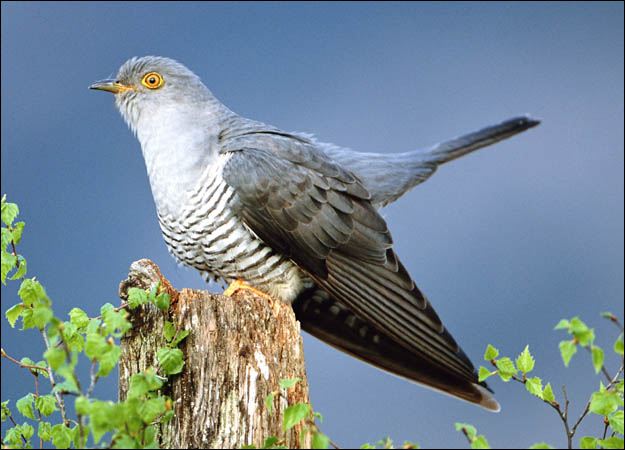
Loude sing cuckou!
I’ve been grading student essays for so long that I’ve barely noticed the succession of gorgeous days that have been washing over us. My seniors graduated Saturday, however, and yesterday I turned in the grades for the rest of my students, so I can finally acknowledge that “sumer is ycomen in.” To remind myself and anyone else who needs reminding that this is a time of year to be treasured, I share with you the famous “Cuckoo Song” from the English Middle Ages.
My father, a French literature scholar, once observed that the English poets have far richer images of nature than do their French counterparts. I myself have always found astounding the keen appreciation of nature in a work like Sir Gawain and the Green Knight, given that the poet may well have witnessed first hand the Black Plague, one of human history’s most cataclysmic natural disasters. To be able to sing of nature’s power of renewal in the face of unimaginable death is a testimony to human resilience and the life force.
“Cuckoo Song” resonates with life. The meadows and woods are blossoming, cows and ewes call for their newborn calves and lambs, bulls leap, bucks fart, and the cuckoo provides a chorus. Never cease (swik) from singing, the poet tells the bird.
As you read the poem, think of the sounds, sights, and smells of spring. Then go outside and experience them first hand. You will find that “Cuckoo Song” helps you appreciate nature that much more. Think of it as a fuel additive, increasing the intensity of your sensory intake.
Sumer is ycomen in,
Loude sing cuckou!
Groweth seed and bloweth meed,
And springth the wode now.
Sing cuckou!
Ewe bleteth after lamb,
Loweth after calve cow,
Bulloc sterteth, bucke verteth,
Merye sing cuckou!
Cuckou, cucku,
Well singest thou cuckou:
Ne Swik thou never now!


One Trackback
[…] as parodying the light-heart medieval poem “Cuckoo’s Song” (“Sumer is icumen in”). No singing cuckoos, bleating lambs, lowing cattle, and farting goats in […]